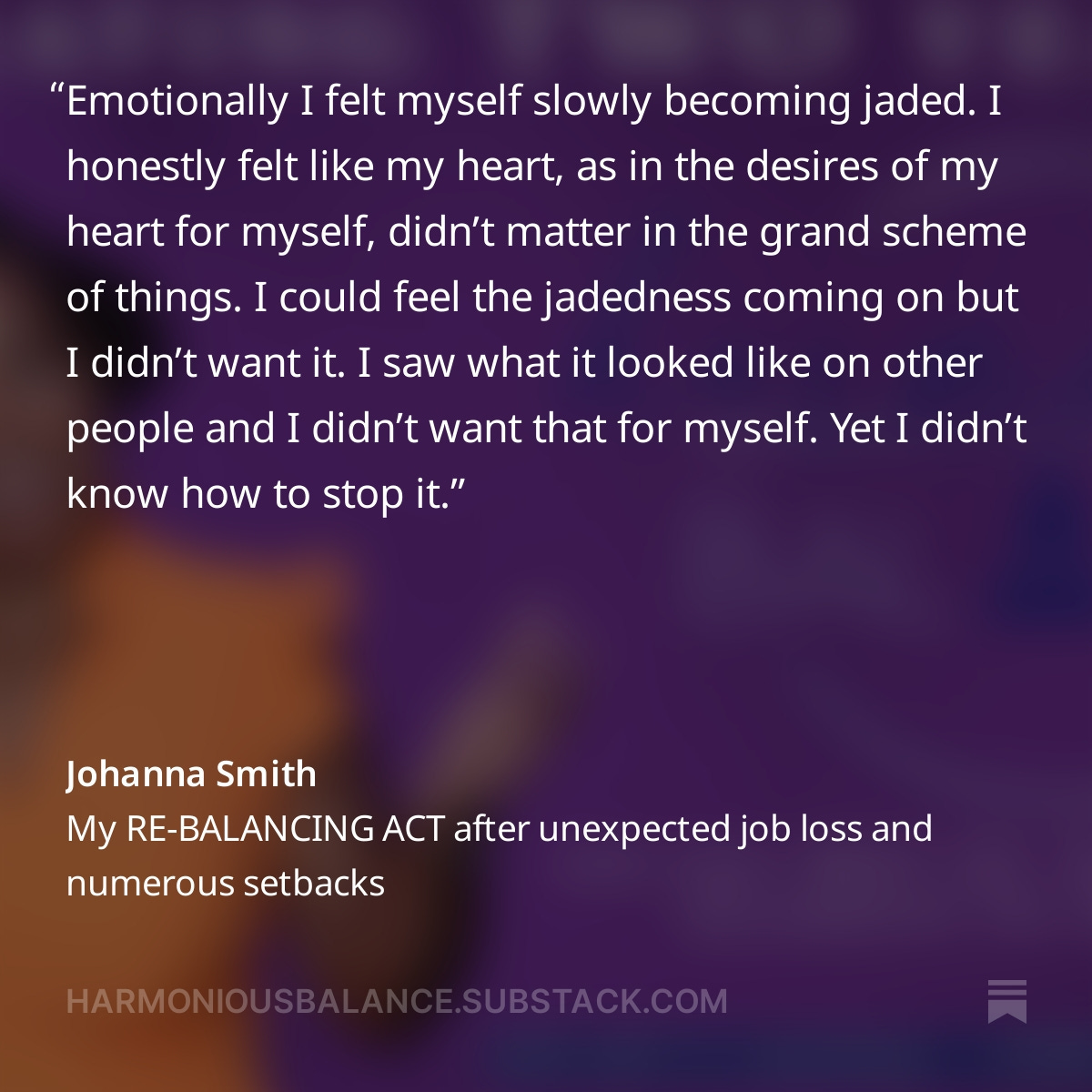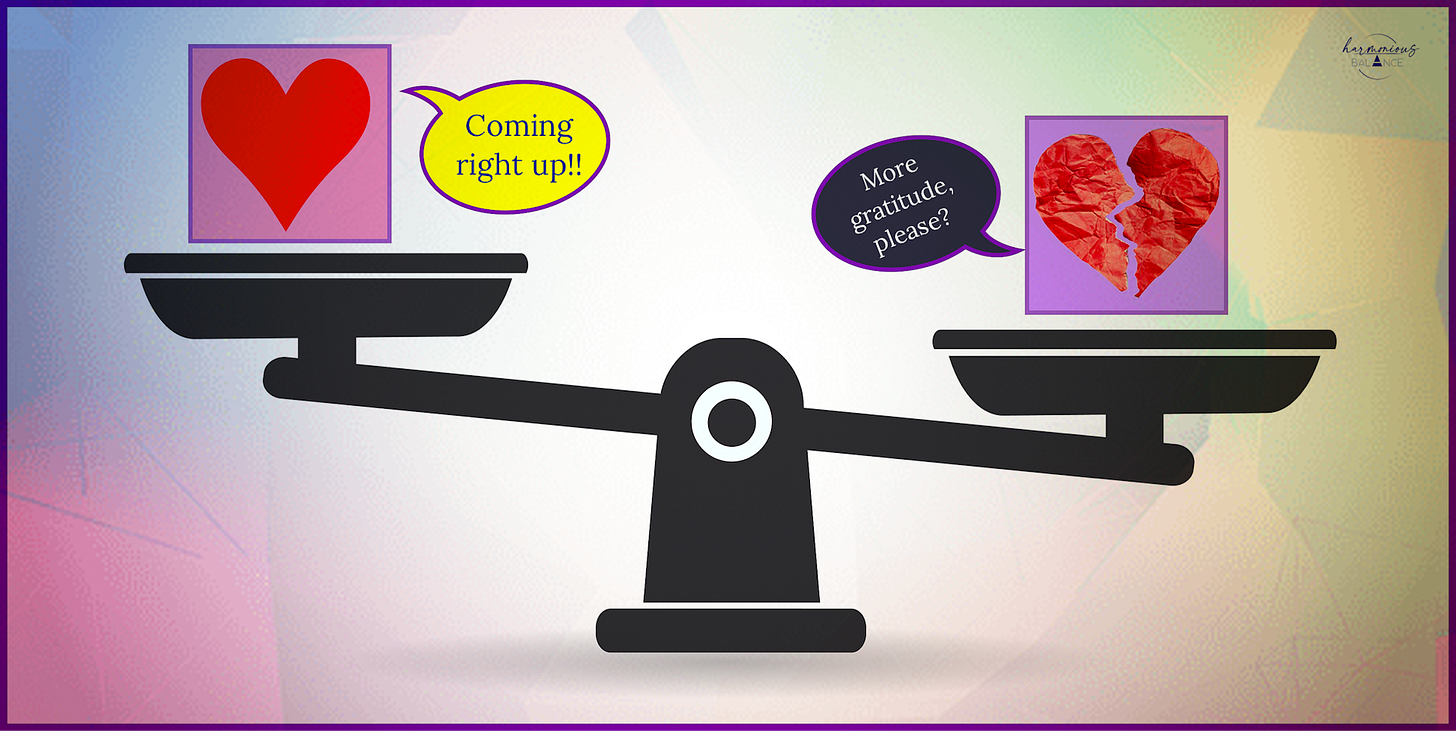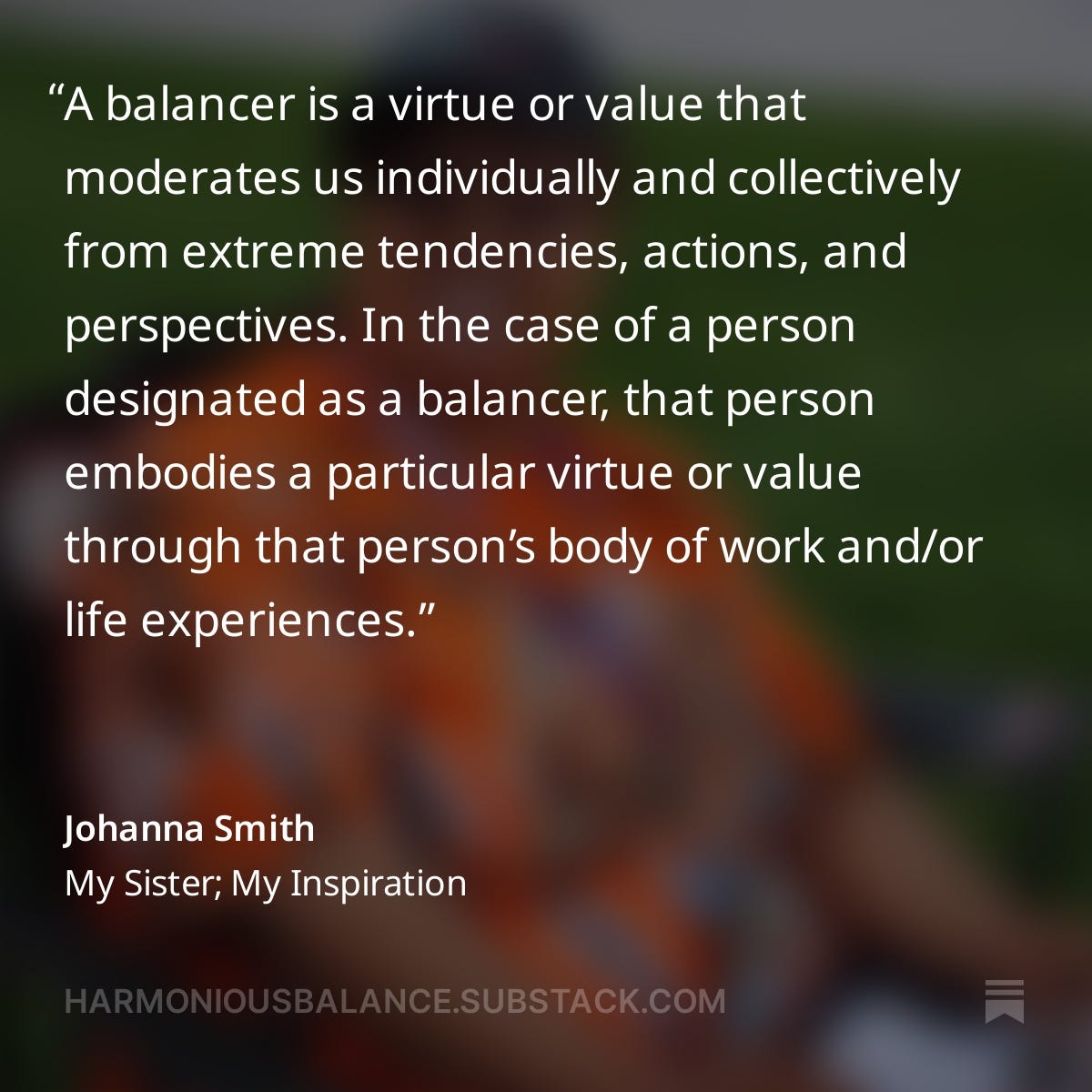The Balancing Power of Gratitude
How I learned practicing gratitude was not just some frivolous idea
Several years ago one Sunday afternoon while going through an existential crisis of some kind, (I’ll call it “one-third-life” crisis. Something between quarter-life and mid-life crises), I streamed a sermon from a very prominent Christian minister hoping to be inspired. Though I had been grappling with my faith, it seemed as if his sermons at that time had been tracking with me. So that particular Sunday, my hope sprung eternal. He was reading a familiar passage of scripture for us Christians. The story of Abraham and Sarah conceiving a child at a very, very, very old age. This particular minister promised to enlighten us with the answer to the age-old question of why the fulfillment of God’s promises is often prolonged.
After nearly an hour, it seemed as if the minister was finally going to share this faith-fortifying revelation. I leaned forward with anticipation as I was beyond eager to hear what he was going to say. He finally said, and I’m paraphrasing, God waited so long so that Abraham would be grateful! I collapsed back into my seat like, WHAT?! Indignant and incredulous barely describe how I felt in that moment.
At a time in history, when having child meant everything, especially for a woman, a barren woman at that, I’m sure Sarah would’ve been grateful at 30, 40, 50 , 60, 70, even 80!! Instead the promise was fulfilled when Sarah was 90 and Abraham 100. There isn’t any doubt in my mind that both of them would’ve been grateful at a much, much younger age.
I immediately turned off that sermon because I simply could not accept his explanation. I felt insulted. I completely understand senses of entitlement, moments of self-loathing and self-pity. However, I would argue the average person is not an ingrate. In that moment, I pretty much threw my hands up wondering, why gratitude seemed to be the answer for everything?
Be thankful for what you have! Stop feeling sorry for yourself and go help somebody else!
Over the years, I’ve heard these two remedies in some way, shape, form or fashion spoken, rather commanded, to me or somebody else that was having a hard time emotionally. It is a pet peeve of mine when simplistic solutions are given to complex matters. It feels belittling and dismissive. With gratitude specifically, it simply does not change the situation. Even though I’m not an ingrate, I honestly did not want to hear another person talk about gratitude journals. I would roll my eyes or scroll quickly past anything about gratitude. While I believed there was merit to gratitude, I never believed it to be a panacea and I was frankly tired of hearing it touted as if it were a cure-all.
Back to my existential crisis. I had been going through varying degrees of my one-third-life crisis for quite some time. My Re-balancing Act tells my journey in more detail. For now, I’ll just say that I was tired of feeling down. Though I wasn’t depressed, I may have been on a path towards depression.
While I didn’t know when or how my situation would change, I wanted to know how to be happier in the meantime; I wanted to know how to smile in the meantime; I wanted to know how to feel good in the meantime; I wanted to know how to keep my heart from growing cold in the meantime. And I didn’t want to fake any of it.
“Fake it til you make it,” is not my mantra.
I wanted to genuinely feel lighter. Though this essay may sound otherwise, I’m actually not an easily frustrated person. I am very even-keeled and level-headed. Once upon a time, I prided myself on how easy it was for my head to overrule my heart. But with this particular crisis my heart, as in my emotions, began taking over. It scared me because these weren’t positive emotions. I’d gladly let bliss and happiness take over but that’s not what my emotions were serving up.
During this crisis, I relocated to Los Angeles from Chicago. About six months after relocating, I woke up with a basketball metaphor revelation. Literally, I opened my eyes one morning and within seconds received this download from heaven, Johanna, if you do not let your heart run point, you are going to lose the game. The game of life that is. Not a literal death but the joy that I desperately needed, I would never experience.

At some point during this crisis, I was able to translate into my personal life what I learned on the job about using asset-based language instead of deficit-based language when referring to our students. Though I have a fairly high level of self-esteem, I realized that all of my self-improvement efforts were essentially me constantly nit-picking my perceived deficits. When exactly this epiphany occurred, I do not remember. I just recognized it as the emotional breakthrough I needed. All of a sudden, I was able to arrest myself and boldly proclaim that I know I’m more asset than liability!
Then at some point afterwards, it occurred to me that gratitude was asset-based language!! Gratefulness is an asset-based emotion that counterbalances negative emotions that cause us to focus on deficits and lack. Gratitude is the life preserver that prevents us from drowning The revelation that my heart needed to lead meant that gratitude needed to call the plays. Gratitude is a balancer!
All of the advice/commands I had been given over the years may not have been articulated well but turned out to be sage advice. Once I understood this revelation, I made this post on Instagram to clarify what gratitude is and what gratitude is not. That is what I will leave you with today.
Onward to gratitude and Harmonious Balance, my friends!
Johanna
**For customized content requests,1:1 coaching and speaking inquiries, feel free to contact me.**











“I am Grateful!”